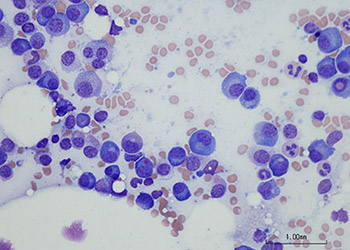 (hsph.harvard.edu) – Do survivors of childhood cancer return to normal health as they grow up? According to new research from Harvard T.H. Chan School of Public Health and Dana-Farber/Boston Children’s Cancer and Blood Disorders Center, overall health-related quality of life in young adult survivors of childhood cancer resembles that of middle-aged adults. In a study published today in the Journal of the National Cancer Institute, the investigators show that childhood cancer survivors who are 18 to 29 years old report overall health–related quality of life similar to that reported by adults in the general population who are in their 40s.
(hsph.harvard.edu) – Do survivors of childhood cancer return to normal health as they grow up? According to new research from Harvard T.H. Chan School of Public Health and Dana-Farber/Boston Children’s Cancer and Blood Disorders Center, overall health-related quality of life in young adult survivors of childhood cancer resembles that of middle-aged adults. In a study published today in the Journal of the National Cancer Institute, the investigators show that childhood cancer survivors who are 18 to 29 years old report overall health–related quality of life similar to that reported by adults in the general population who are in their 40s.
The key variable determining people’s sense of well-being is the presence or absence of chronic health conditions. Childhood cancer survivors have been found to have higher risks of heart disease, infertility, lung disease, cancers and other chronic conditions related largely to their prior chemotherapy, radiation, and surgery. Examining health indicators in 18-to-49 year-olds who participate in the national Childhood Cancer Survivor Study (CCSS), the investigators found that only 20 percent reported no chronic conditions. As survival of childhood cancer has increased substantially since the 1970s, research has expanded into ways to reduce the toxicity of treatment to minimize late effects as well as cure the disease. Although a number of pediatric cancers are now treated with less intensive therapies, aggressive treatments with high toxicities remain part of care.
“This research provides an easily accessible way to compare adult survivors of childhood cancer to the general population, in terms of their health-related quality of life, which normally declines as people age,” said Lisa Diller, MD, chief medical officer of Dana-Farber/Boston Children’s and the study’s senior author. “Our findings indicate survivors’ accelerated aging and also help us understand the health-related risks associated with having had cancer as a child. What’s encouraging is that the lower quality of life scores are associated with chronic disease after treatment, not with a history of pediatric cancer itself. If we can prevent treatment-related conditions by changes in the therapy we use for the cancer, then childhood cancer will become an acute, rather than a chronic, illness.”
